MODERN WAR STUDIES


Cover illustration: A member of a 30 Commando Royal Marines shore reconnaissance team in Northern Norway, 2022.
Below: Helicopter warfare, Vietnam, 1968.




Cover illustration: A member of a 30 Commando Royal Marines shore reconnaissance team in Northern Norway, 2022.
Below: Helicopter warfare, Vietnam, 1968.

The University of Buckingham’s Master’s programme in Modern War Studies offers the opportunity to conduct research in a wide range of topics from the period 1945 to the present: whether historical or contemporary; the influence of policy, fighting effectiveness or public attitudes; the changing character of war on land, at sea and in the air, or the increasing potency of cyber warfare.
Modern War Studies is concerned with the influences on how and why conflict occurs. Its diversity provides a richness of issues and themes that can be explored through research, some of which developed by distinguished academics and practitioners during the programme’s seminar series. Their papers provide students with a useful context in which to situate their
own research with recent examined dissertations including: lesson learning from Malaya to Iraq; the press and the Vietnam War; modern generalship; and British Army doctrine. The choice of subject area is ultimately the student’s own.
The MA is awarded solely on the basis of the dissertation (there are no ‘exams’), and the relationship between you and your supervisor is therefore at the heart of the course. The maximum length for the MA dissertation recommended by the School of Humanities is 25,000 words (or approximately 75 pages at line-spacing of 1.5), excluding notes and references. Student and supervisor meet regularly on a one-to-one basis to discuss, plan, and review the dissertation as it develops through the year.
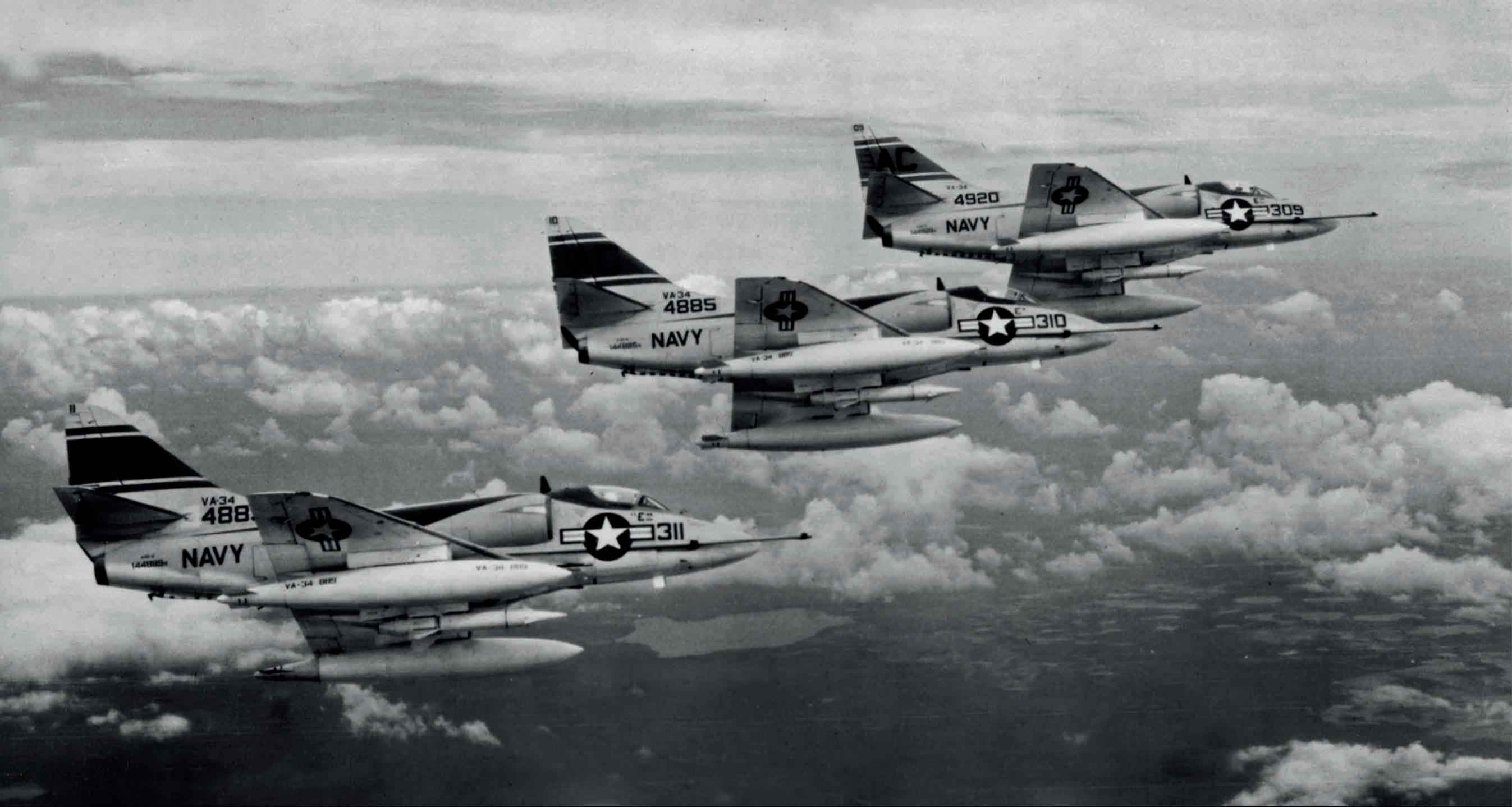
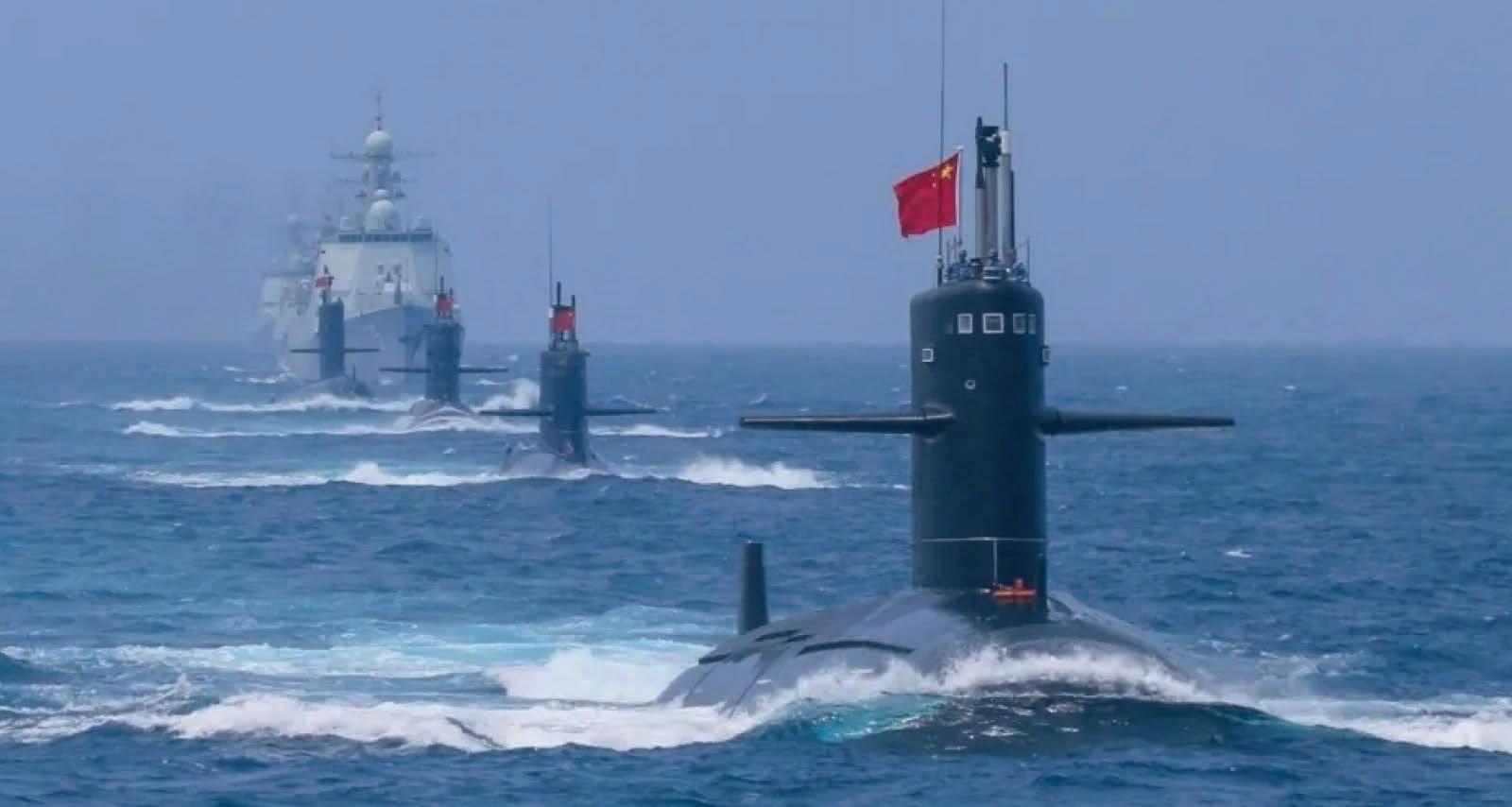
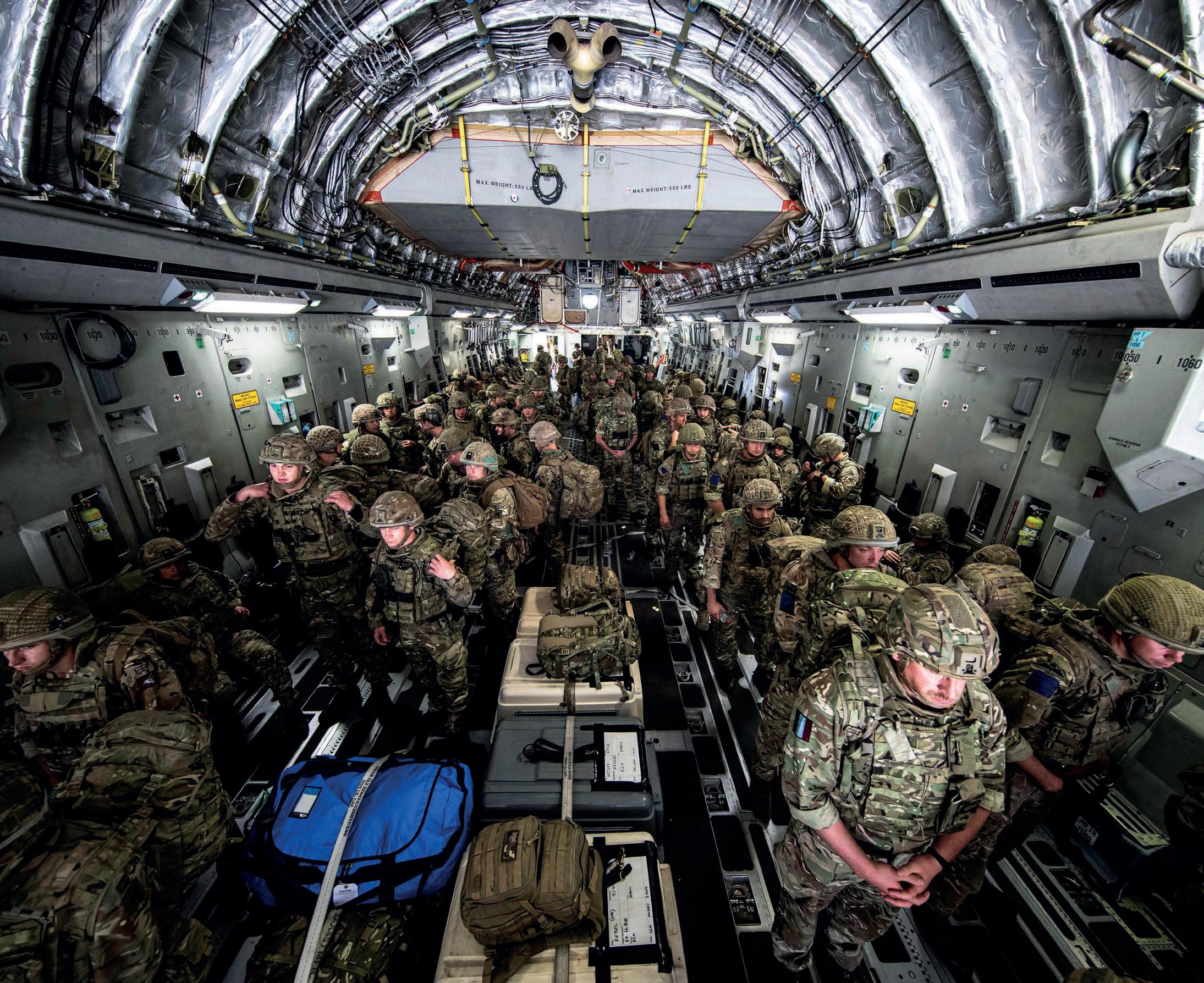
Some students know from the outset the precise subject on which they intend to work. For most, however, the definition of a research proposal is usually a gradual process, with the student starting with a general area of interest, and then focusing on a more closely defined topic as a result of further reading and consultation, usually with the Course Director. Most students do not arrive at the final title of their dissertation until towards the end of the first Term, before Christmas.
The Course Director, Professor Lloyd Clark, is available to offer advice to prospective students who would like to discuss possible subjects for their research before they apply. He can be reached directly by email at:
lloyd.clark@buckingham.ac.uk
Opposite page, above: U.S. Navy A4D Skyhawk carrier-based jet aircraft carrying Bullpup air-to-surface missiles, 1959.
Opposite page, below: the British Army’s 16 Air Assault Brigade returning from Afghanistan, 2021.
Above: Chinese submarines at a naval review in the South China Sea, 2022.
Private research and supervision is complemented by a rich programme of seminars which give students direct access to some of the most distinguished scholars of Britain. These seminars take place at the Army and Navy Club, Pall Mall, central London, with a Research Day at the Royal Military Academy Sandhurst (see infra for further details).
The seminars are of course academic events, with a talk by a visiting expert; but they also have a social dimension, bringing research students and senior scholars together to discuss matters of common interest in an informal and congenial atmosphere.
Each seminar at the Army and Navy Club starts at 6:00 pm, with an illustrated presentation by the visiting speaker and is followed by a 40-minute question-and-answer session. There is a break for drinks and then a seated dinner follows (three courses with wine) during which there is further questioning of the speaker and a general conversation about the topic in hand. (The cost of the seminar dinners
and research day lunch is included within the fee.)
This coming year’s seminars explore a broad range of topics drawn from the last 70 years of world history.
Themes include: leadership; command; operations; the philosophy of war and terrorism with papers focused on Cold War Europe; Afghanistan; Iraq; the African Continent; the Balkans and Northern Ireland. Together the speaker series provides an expert insight into some of the major challenges that have confronted armed forces since 1945 and continue to do so in our complex and ever changing world.
Details of the seminar programme for the coming year can be found one the University’s web-page for ‘Modern War Studies’.
Opposite: A Soviet military cinematographer in Budapest during the suppression of the Hungarian uprising of 1956.
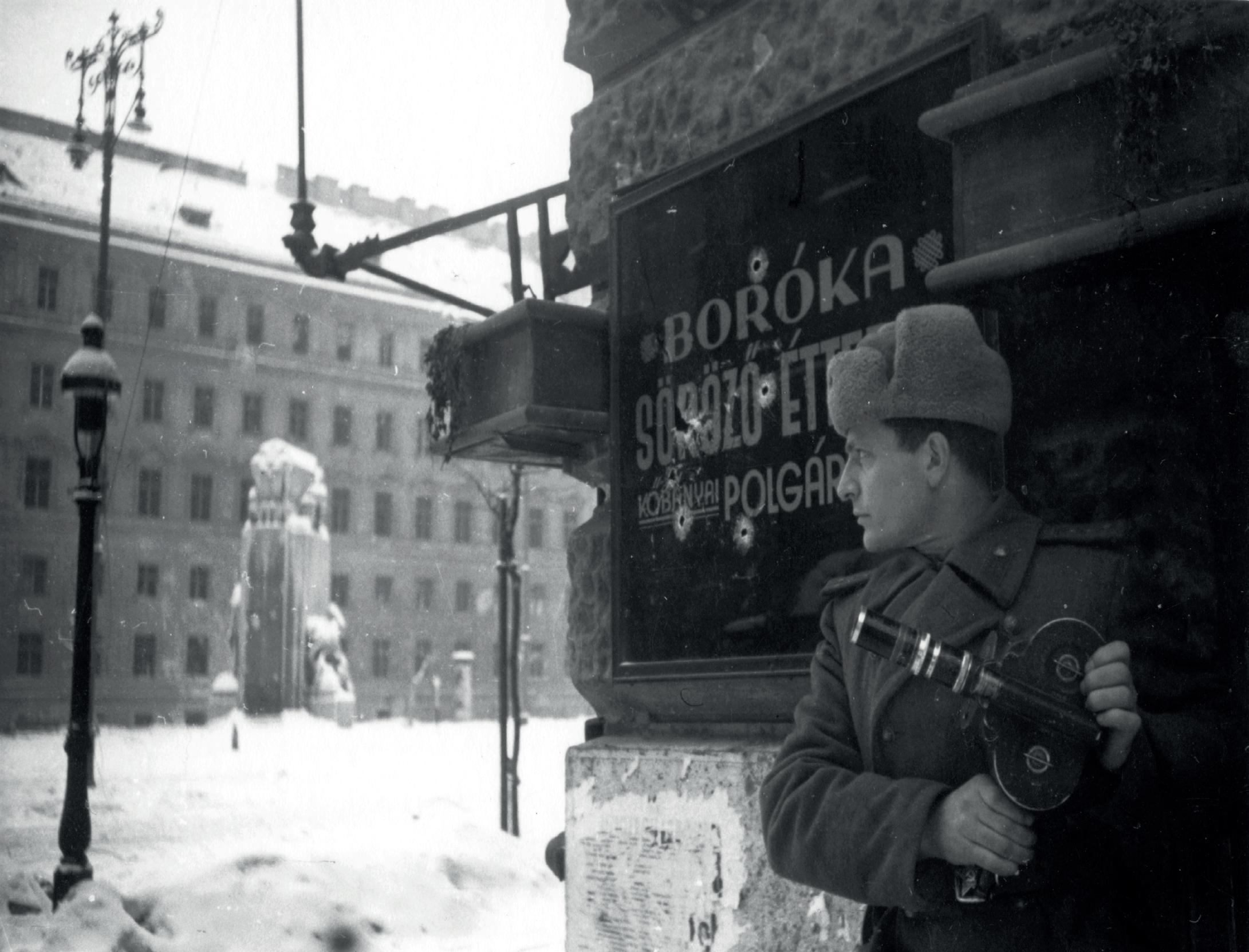
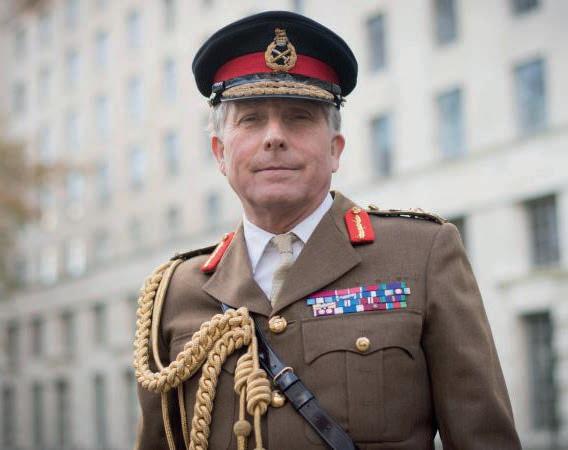
General Sir Nick Carter
General Carter is a former Chief of the Defence Staff (2018-2021) and Chief of the General Staff. He saw active service in the Balkans, Iraq, and in Afghanistan. As Deputy Commander Land Forces in 2012, he was responsible for restructuring the British Army to make it an adaptable force better suited to the 21st century.
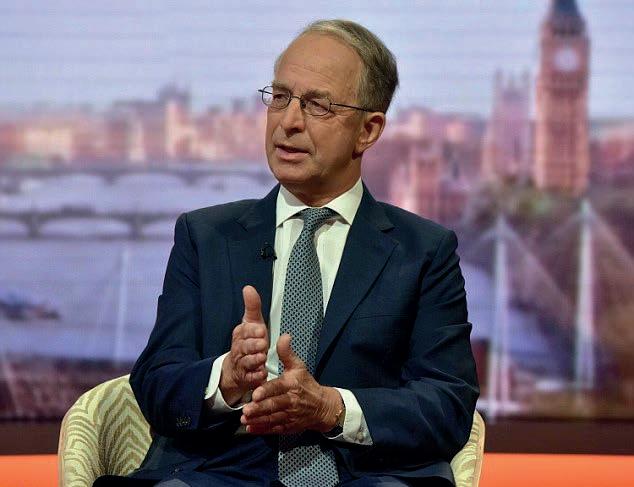
General the Lord Richards
General Richards is a former Chief of the Defence Staff (2010-2013) who was previously Chief of the General Staff, Commander-in-Chief Land Forces, and commander of NATO’s Allied Rapid Reaction Corps. He saw active service in Northern Ireland, East Timor, Sierra Leone; and Afghanistan.
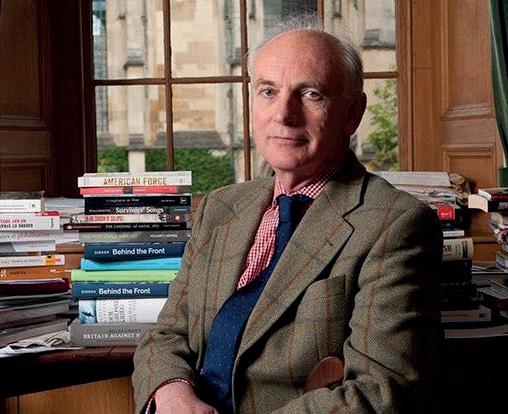
Professor Sir Hew Strachan
Sir Hew Strachan is Professor of International Relations at the University of St Andrews. Formerly Chichele Professor of the History of War at All Souls College, Oxford, he was knighted for his services to the Ministry of Defence in 2013 and is a past winner of the Pritzker Literature Award for Military Writing..
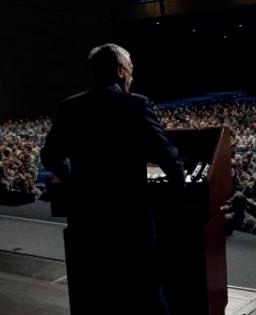
Professor Daniel Marston Professor Marston, above, is the Director of the Secretary of Defense Strategic Thinkers Program and is Professor of the Practice at John Hopkins University. He has twice won the Templer Medal for the book that has made the most significant contribution to the history of the British Army.
Professor Joanna Bourke Professor Bourke, below, is Professor of History at Birkbeck College, University of London. She is the author of 15 books on subjects including: war and masculinity; war art; militarism; military psychiatry; the history of killing; military violence; and the cultural history of fear.
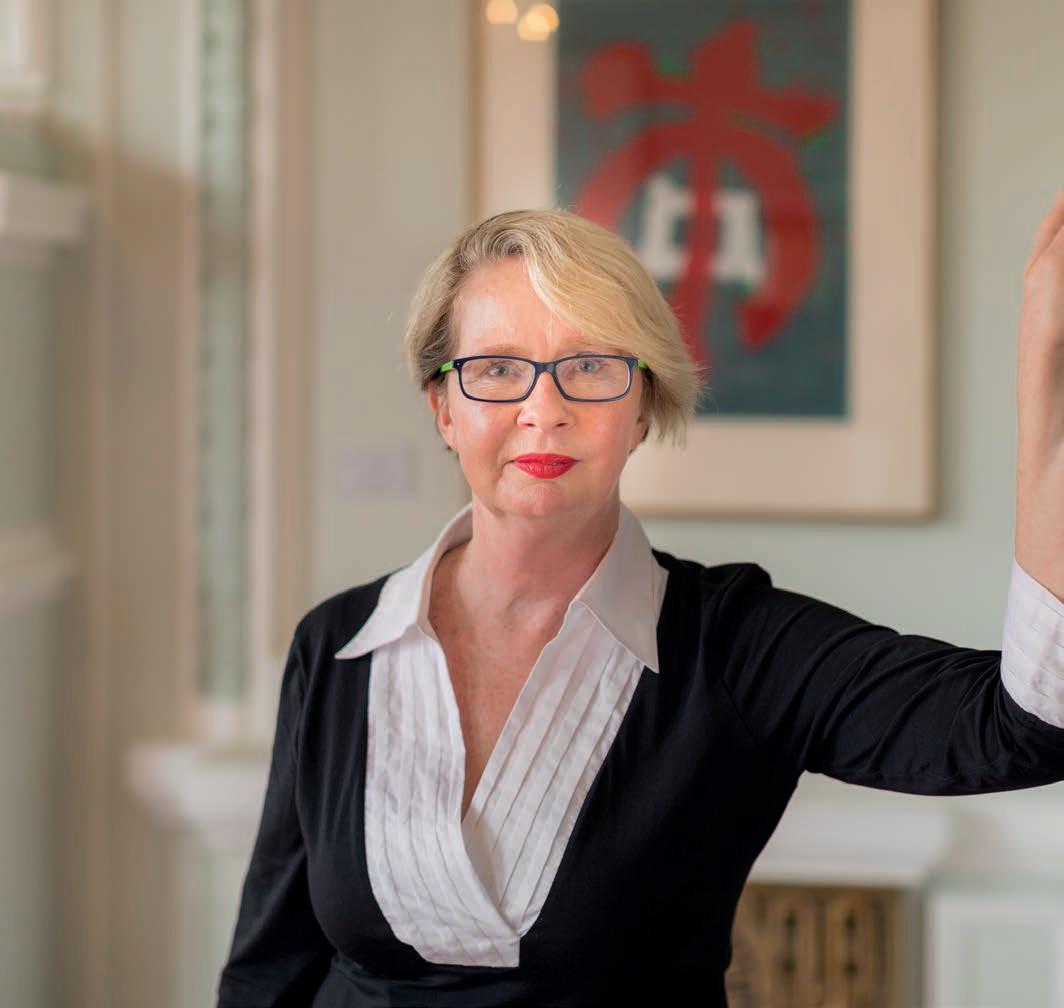
The annual Research Day will take place in Old College, Royal Military Academy Sandhurst, Camberley
GU15 4PQ. Details of the date and programme can be found on the course web-page. Car parking will be available.
Right: the Royal Military College’s Adjutant guides his mount up the steps of the Old College at the end of the Sovereign’s Parade, 2022.
Below: the Old College, Sandhurst, Berkshire.
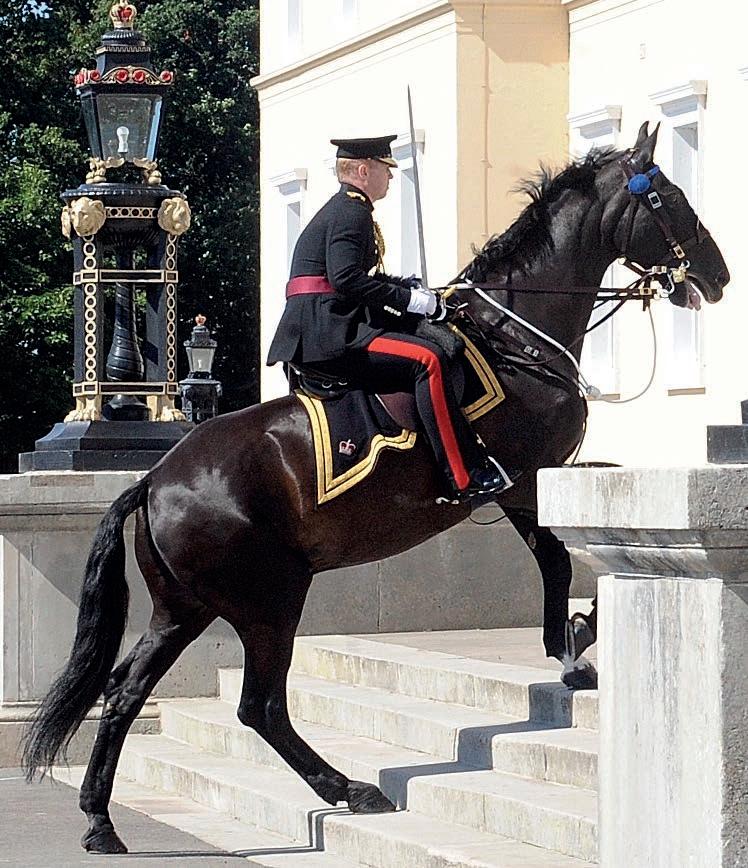
Seminars and dinners take place at the Army and Navy Club (right), 36-39 Pall Mall, St James’s, London, SW1Y 5JN.
Nearest Tube Stations: Green Park or Piccadilly Circus.
The cost of the dinners is covered by the annual tuition fee: there is no additional charge.
Below: the dining room of the Army and Navy Club, Pall Mall.
Tutorials usually take place at the University’s offices in Bloomsbury (51 Gower St, London, WC1E 6HJ) or can take place online if the student prefers.
Students see their supervisors roughly once a month during term for a oneto-one discussion of their research and the review of their most recent piece of writing.
The Gower St offices are open for private study by students 24/7.
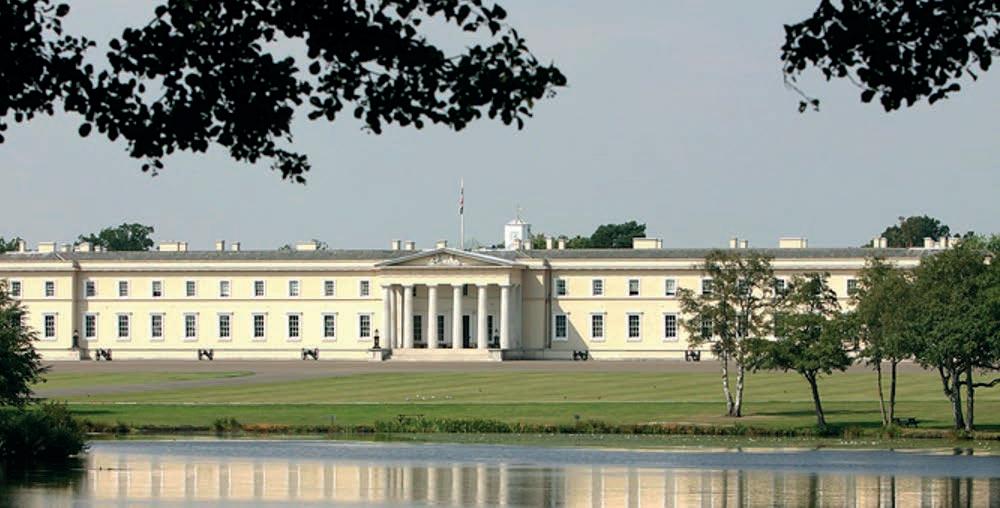
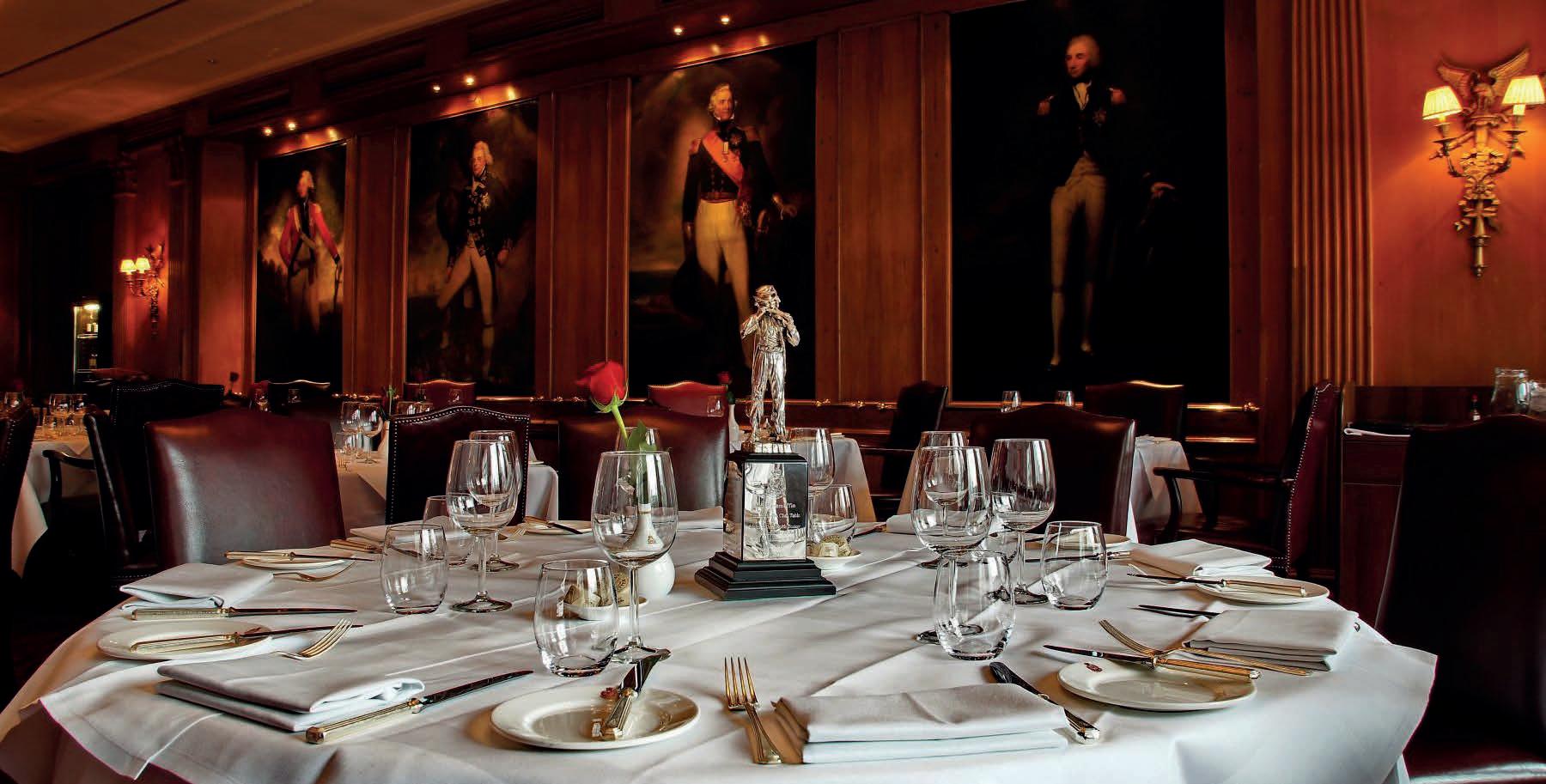
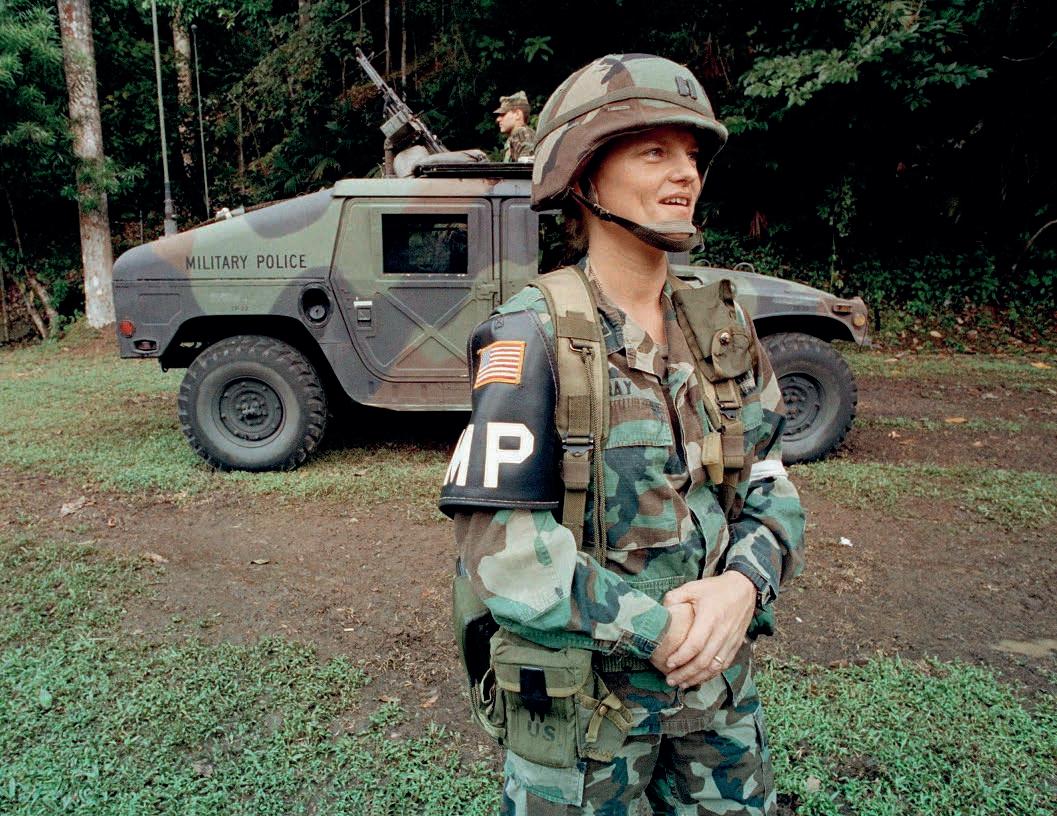
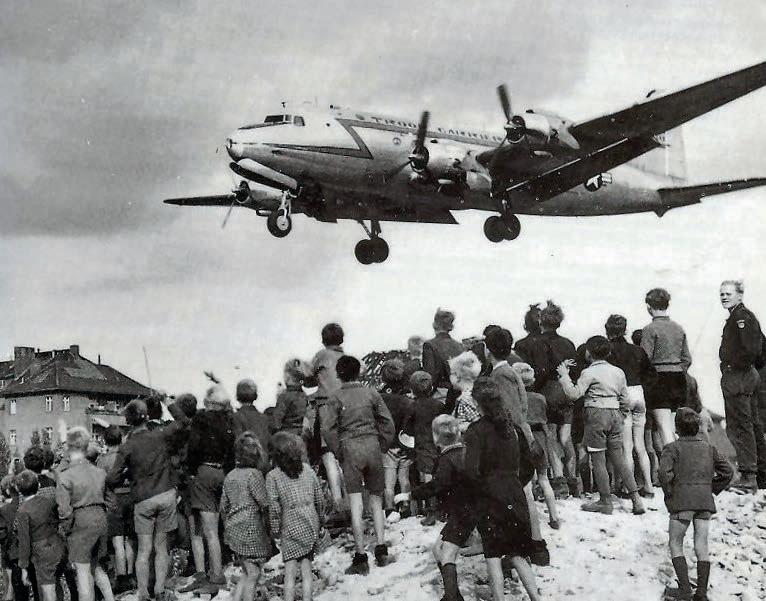
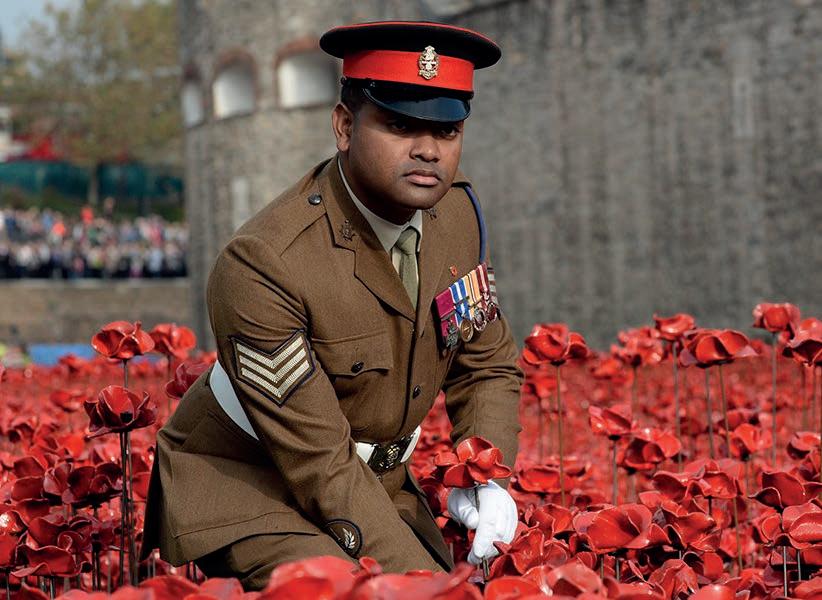
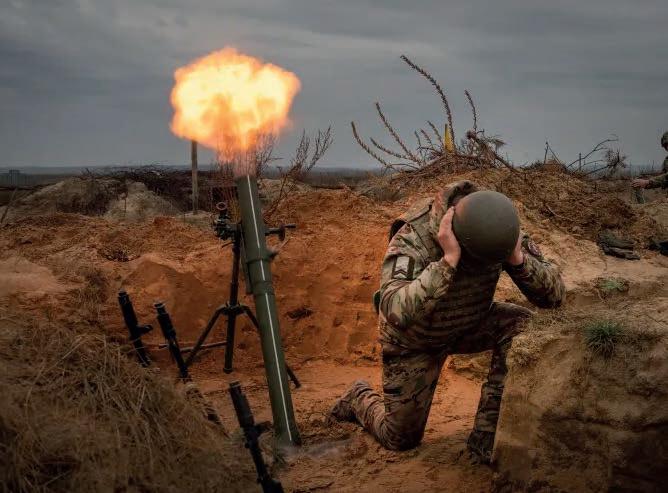
The course is based on traditional Oxbridge-style teaching, with oneto-one supervision meetings being the core of the programme. Students usually meet with the supervisor at least once a month during term.
The University’s academic year has four terms, beginning at the end of September:
Autumn Term, September-December
Winter Term, January-March
Spring Term, April-June
Summer Term, July-September
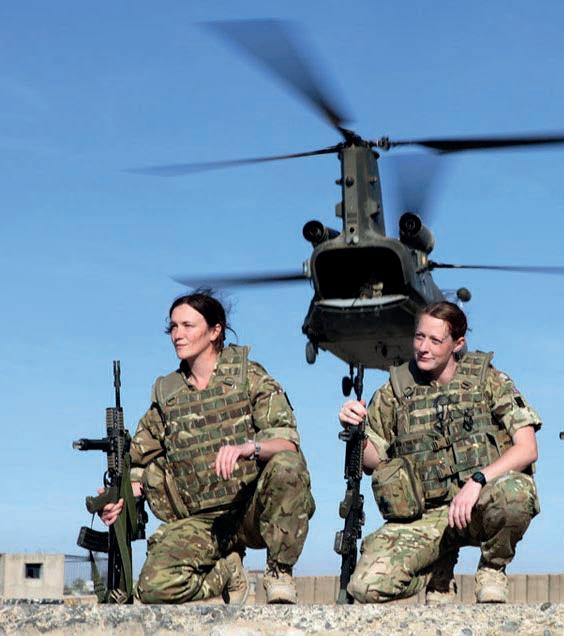
Top left: US Military Police in Panama City, 1990.
Top right: the Berlin air lift, 1949.
Centre left: Serjeant Johnson Beharry, VC, at the Tower of London, 2014.
Centre right: Ukrainian soliders traning in the country’s north, 2023.
Lower left: Soldiers of 2nd Battalion, the Royal Highland Fusiliers, Helmand Province, 2011.
Each student is assigned two supervisors: a Principal Supervisor, who will be your main point of contact and advice. The Principal Supervisor will also read all your draft chapters as these are produced during the year.
As well as the Principal Supervisor, each student is given a Second Supervisor, whose role is more limited, providing a ‘second pair of eyes’, should this be needed during the production of the draft dissertation text.
The degree is assessed entirely through the examination of the dissertation, which accounts for 100 per cent of the final mark.
In addition to the seminar programmes and students’ one-to-one meetings with their supervisor, the programme also offers specialist classes on thesiswriting, referencing, and on how to use archival and on-line research resources.
For those who need to work military archives in the UK the programme includes a series of classes on how to access and interpret source material.
These sessions focus on: official government documents; private diaries; war diaries; after action reports; doctrine and technical reports.
The University’s IT Department offers comprehensive help on the setting up of email accounts and online access to the University Library and its databases.
Students who wish to take their research further may have the opportunity, at the end of their Master’s, to extend their studies to doctoral level.
Where the topic is appropriate, students are permitted to treat their Master’s as the first year of the three required for PhD study.
If approved for ‘upgrading’ to doctoral study, they may then submit their thesis for the PhD degree after a further two
years of full-time study (three or four of part-time study).
Candidates who already have a Master’s degree and wish to embark directly on PhD study should contact the Programme Director, via the Admissions Office.
For questions about the application process, please email Lin Robinson at the Graduate Admissions Office.
Email: lin.robinson@buckingham.ac.uk
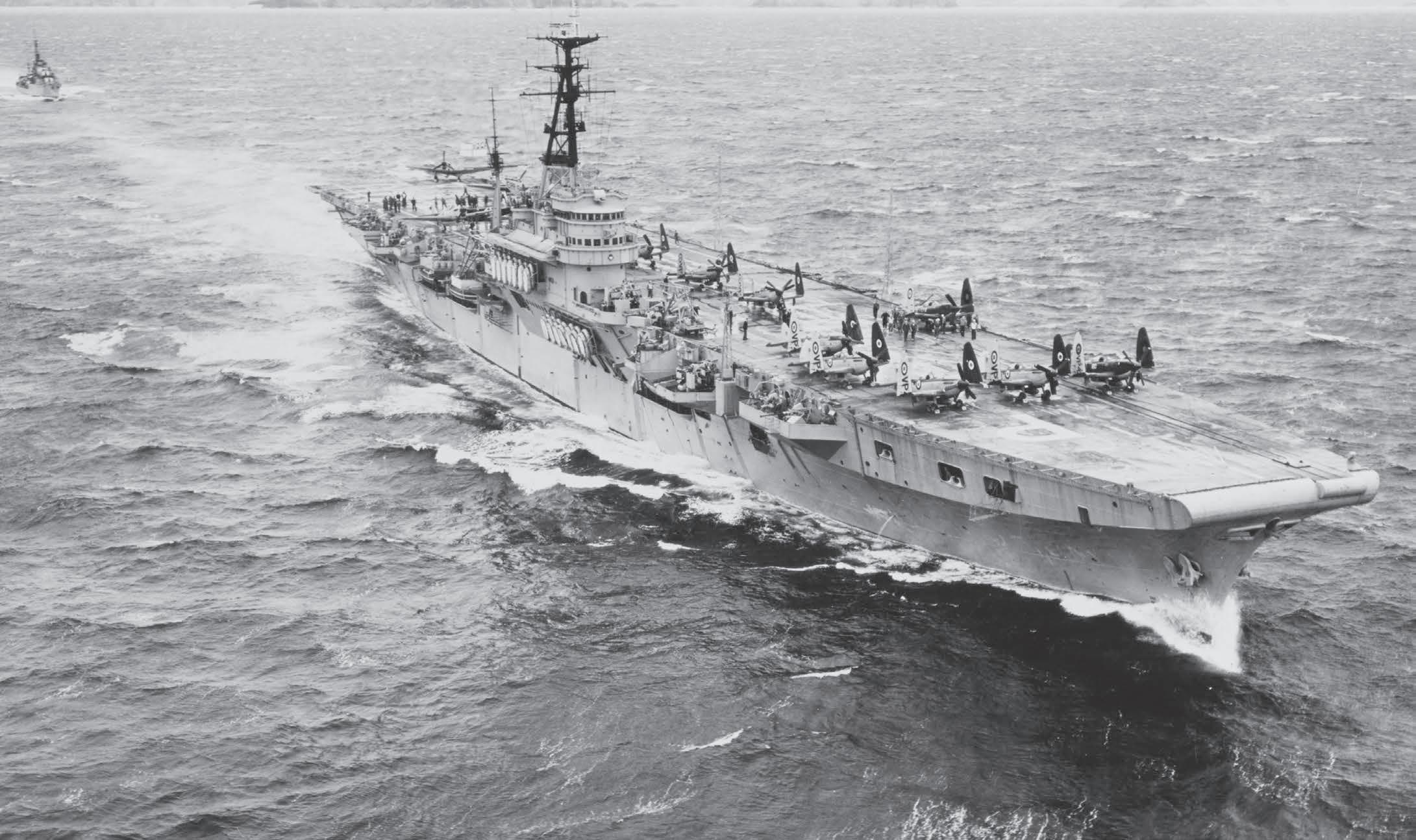
Supervisors for those undertaking doctoral supervision for the School of Humanities in the field of Modern War Studies include:
Professor Lloyd Clark: military command and leadership; organisational lesson-learning; military effectiveness; operatinal fighting methods.
Professor David Martin Jones: international relations and political development in East and South East Asia; terrorism, ideology and political violence; applied history and political thought; Intelligence, strategy and national security
Professor Matthias Strohn: total war; the development of doctrine, the application of military history in the
current military and strategic contexts.
Dr Aaron Edwards: CounterInsurgency, Counter-Terrorism and military strategy; intelligence and national security; the Northern Ireland Troubles and the peace process.
Dr Thomas Colley: propaganda and strategic communication in war; strategic narratives; communication dynamics; British foreign policy and international identity; Social media and its utility for defence practitioners; and disinformation and its societal impact.
Dr Paddy Walker: weapons autonomy; the behavioural, command and leadership implications of new technology; conflicts norms and forms.
Opposite page: HMS Triumph in 1950.
A Royal Navy Colossusclass light fleet aircraft carrier, she saw service in the Korean War.
Right: USS Pennsylvania, the United States Navy Ohio-class ballistic missile submarine, in commission since 1989.
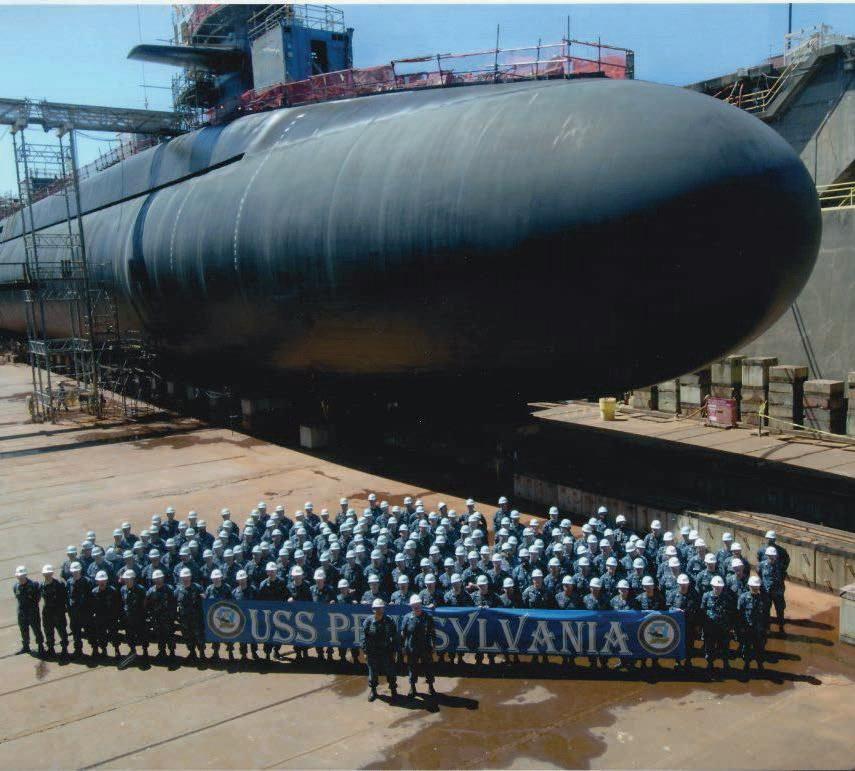
The Programme Director, Lloyd Clark, is Professor of War Studies at Buckingham and Director of Research at the Centre for Army Leadership based at the Royal Military Academy Sandhurst. A Fellow of the Royal Historical Society and a member of the British Commission for Military History, he also a member of advisory boards for several think tanks, academic journals and international research institutes.
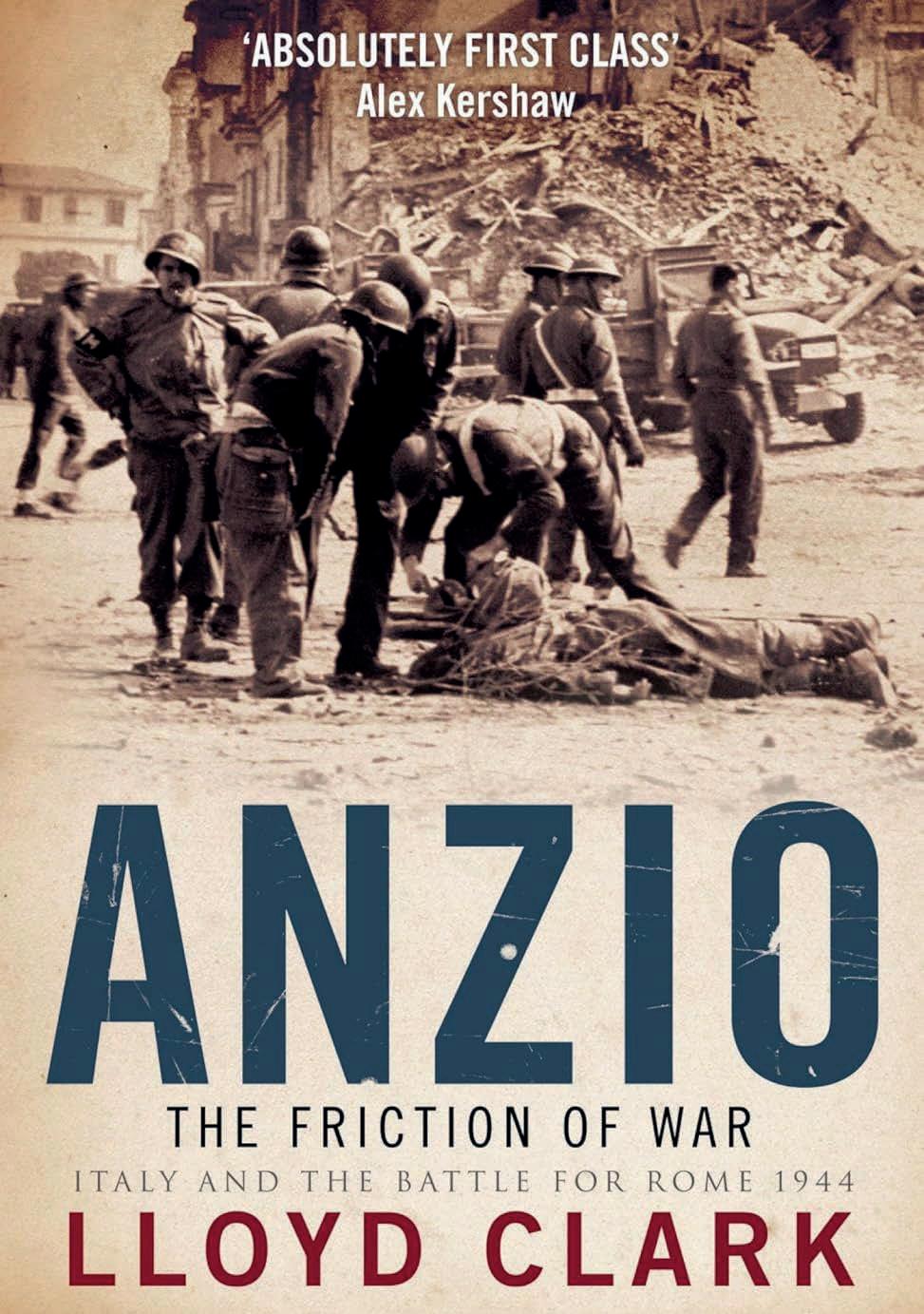
A specialist in all aspects of command and leadership, he had a particular interest in lesson learning, and military performance and effectiveness. His publications include Anzio, The Friction of War, Italy and the Battle for Rome 1944 and Blitzkrieg: Myth, Reality, and Hitler’s Lightning War: France 1940. His latest book The Commanders: The Leadership Journeys of George Patton, Bernard Montgomery and Erwin Rommel was published in 2022.
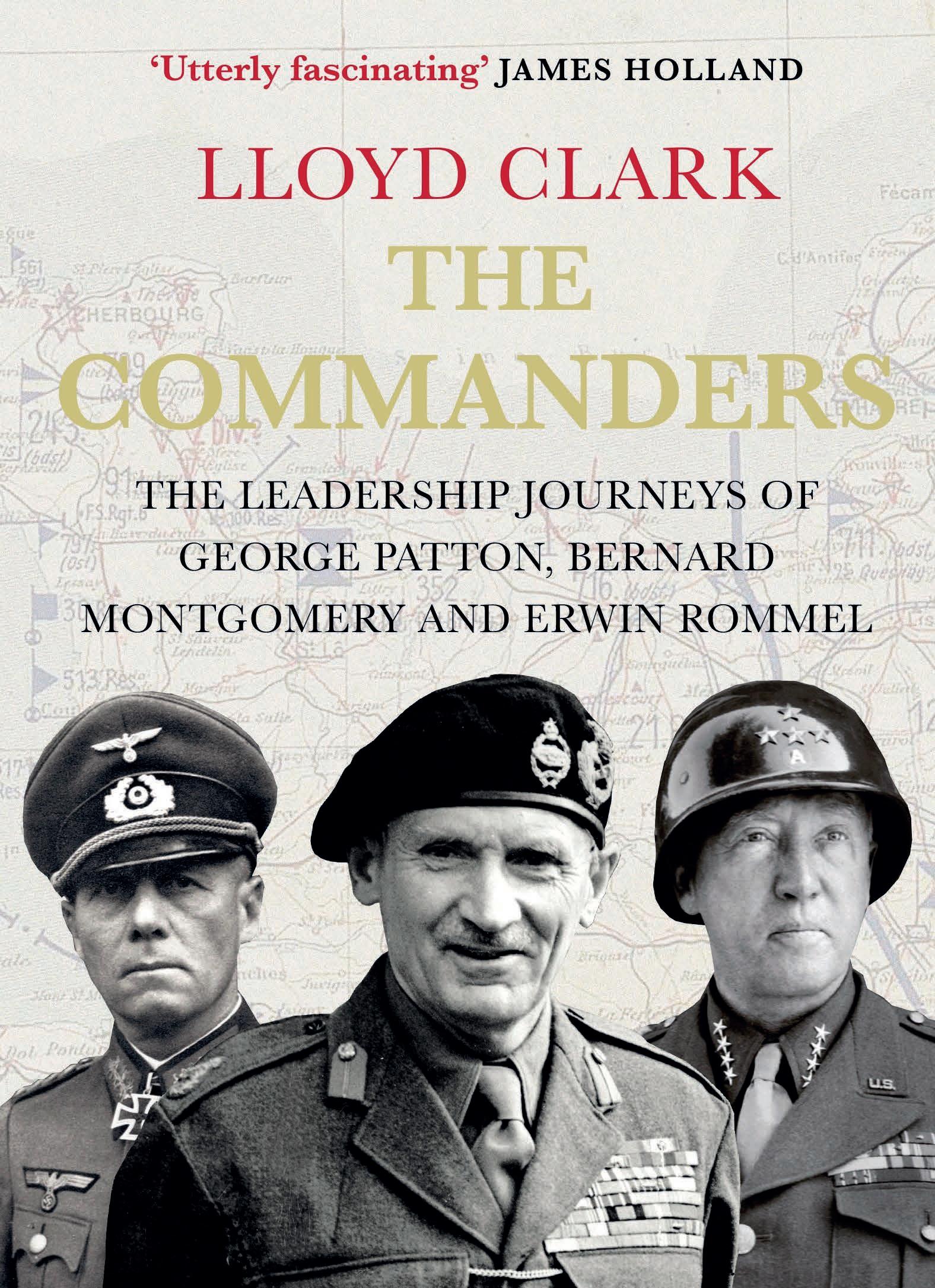
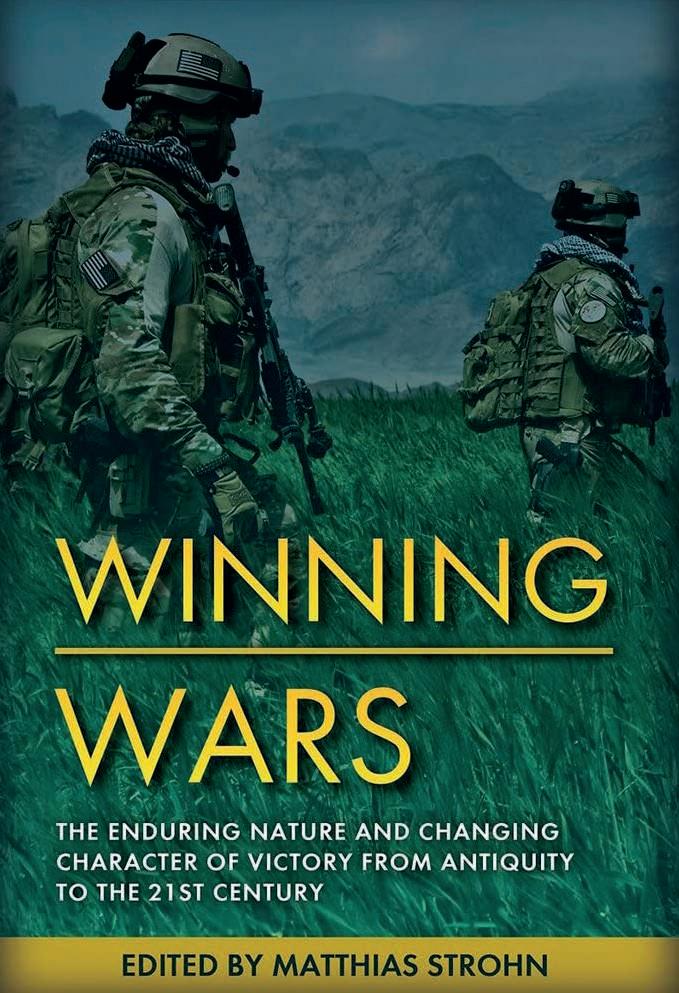
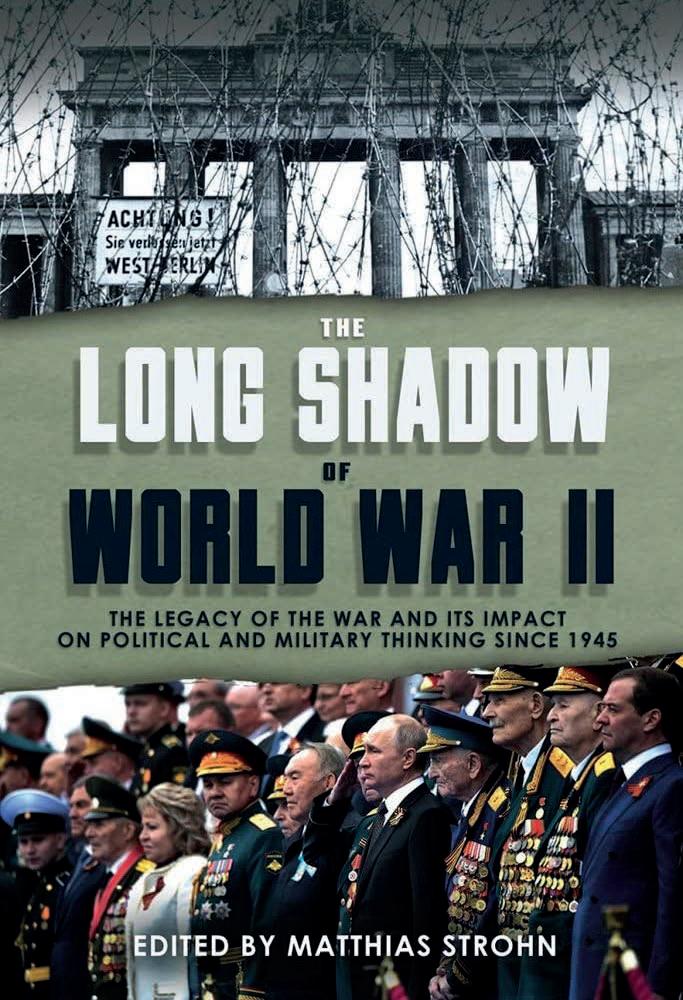
Tutorial support is provided by Matthias Strohn, Visiting Professor and Fellow at the University’s Humanities Research Insttute and the Head of Historical Analysis at the Centre for Historical Analysis and Conflict Research (CHACR), the British Army’s strategic think tank. He is also an academic member of the Royal Military Academy Sandhurst. Professor Strohn is a specialist in the history of war in the twentieth century, with a special interest in command and leadership, the development of doctrine, and the application of military history in the current military and strategic contexts.
The usual requirement for admission to the MA is an honours-level bachelor’s degree from a recognised university with either a First or an Upper Second. In exceptional circumstances, the Programme Director may accept mature students without an undergraduate degree if they have relevant and appropriately extensive experience and can satisfy the Programme Director at an interview that they are able to undertake graduate-level research.
after the application process is in train) and evidence that they have the appropriate level of written and spoken English. The Admissions Office can provide further details.
Arrangements of current serving officers in HM Armed Forces
The names of two referees are required. Letters of reference do not need to be submitted at the time of application, but can follow once the application process under way. Usually, at least one of the referees should be from an academic, but where this is not possible a letter of reference from a professional colleague who is familiar with the applicant’s intellectual abilities is also acceptable.
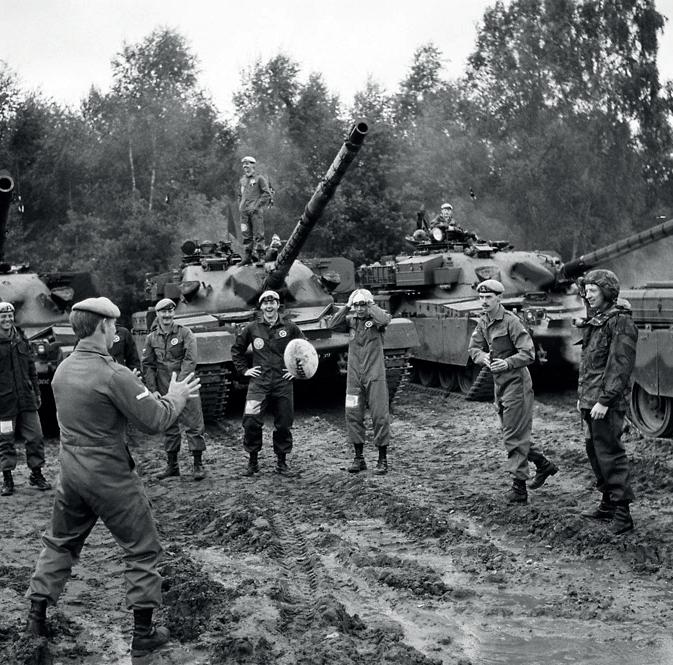
Applications from international students are welcomed. In addition to the standard application requirements set out above, international applicants are also required by law to supply evidence that they have the appropriate visa (though this may be provided
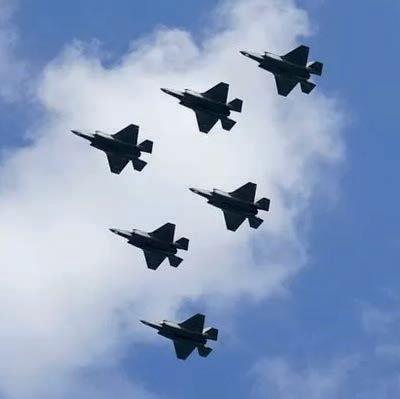
Those who wish to attend the talks and dinners, but who do not wish to take a degree, may join the course as Associate Students (in US usage ‘Audit Students’). This status will enable the student to attend the ten guest seminars and dinners, and to meet the guest lecturers, but does not require the submission of any written work.
Associate Students are not registered for the MA degree.
For all questions about the application process, please email Lin Robinson at the Graduate Admissions Office. Email: lin.robinson@buckingham.ac.uk
The University accepts appropriately qualified adults regardless of age. While we regularly accept candidates who are recent graduates, a significant proportion of our students opt to undertake research during or after a successful career in another context. We welcome candidates from all backgrounds, able to bring a depth of experience and a variety of cultural perspectives to their enthusiasm for research.
To recognise the achievement of graduation from the Advanced Command and Staff Course (ACSC) or its international equivalent, the University of Buckingham offers a special six-months discounted MA by Research in the field of Modern War Studies.
This offer is open to all officers (regular and reserve) who have graduated from the ACSC or an equivalent course in their international home institutions.
The course commences in October with a ‘Research Skills Study Day’ and, after six months of supervised independent research, culminates with the student’s submission of a dissertation of approximately 12,50025,000 words. The course is based in London, but there are no residential requirements for the course. Past students have come from Europe, Asia, Africa and the Americas.
Face-to-face tutorials remain the preferred way of teaching, but other (online) methods can also be used.
Opposite page, left: NATO tank crews play football on exericse, 1949.
Opposite page, right: RAF F-35B jets over Lincolnshire 2023.
The sums listed in the table opposite are the totals for the full year. The cost of the post-seminar dinners is included in the overall tuiton fee.
A system of postgraduate loans to finance study for Masters’ and PhD degrees in the UK is supported by the UK Government.
The loan will provide up to £11,222 (at the time this document went to press) for taught and research programmes in all subject areas. The loans can be used for tuition fees, living expenses or both.
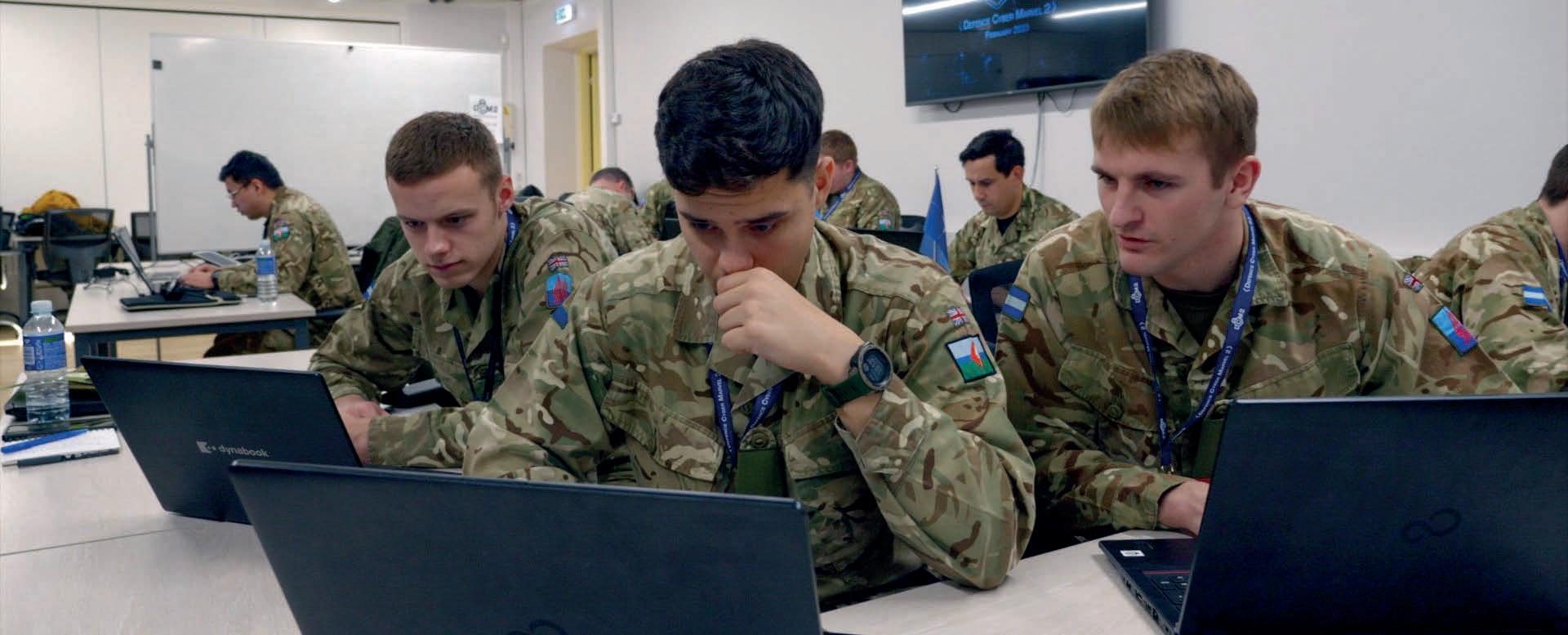
Details of scholarships and other external funding can be found on the University website. You should make an application to study at the University and receive an offer-letter confirming our acceptance of your application before applying for a scholarship.
The University of Buckingham is dedicated to supporting access to post graduate courses by serving and former members of HM Armed Forces. As such, it is an approved Learning Provider (No.1460) on the MoD’s Enhanced Learning Credits Scheme which provides financial support in each of a maximum of three separate financial years. For more details see: MoD Enhanced Learning Credits
The University of Buckingham Modern War Studies post graduate courses are approved for those entitled to Veterans Affairs (VA) Benefits under the GI Bill. Former members of the US Armed Forces (or a veteran’s dependents) may claim the benefit using the details on the University of Buckingham page of the VA Department Institution Search website: VA Dept Institution Search
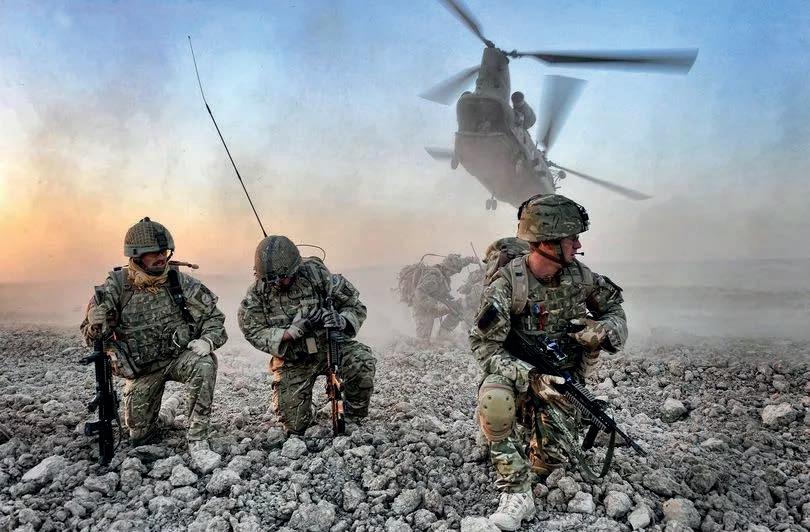
Opposite page: US naval cadets, 2016.
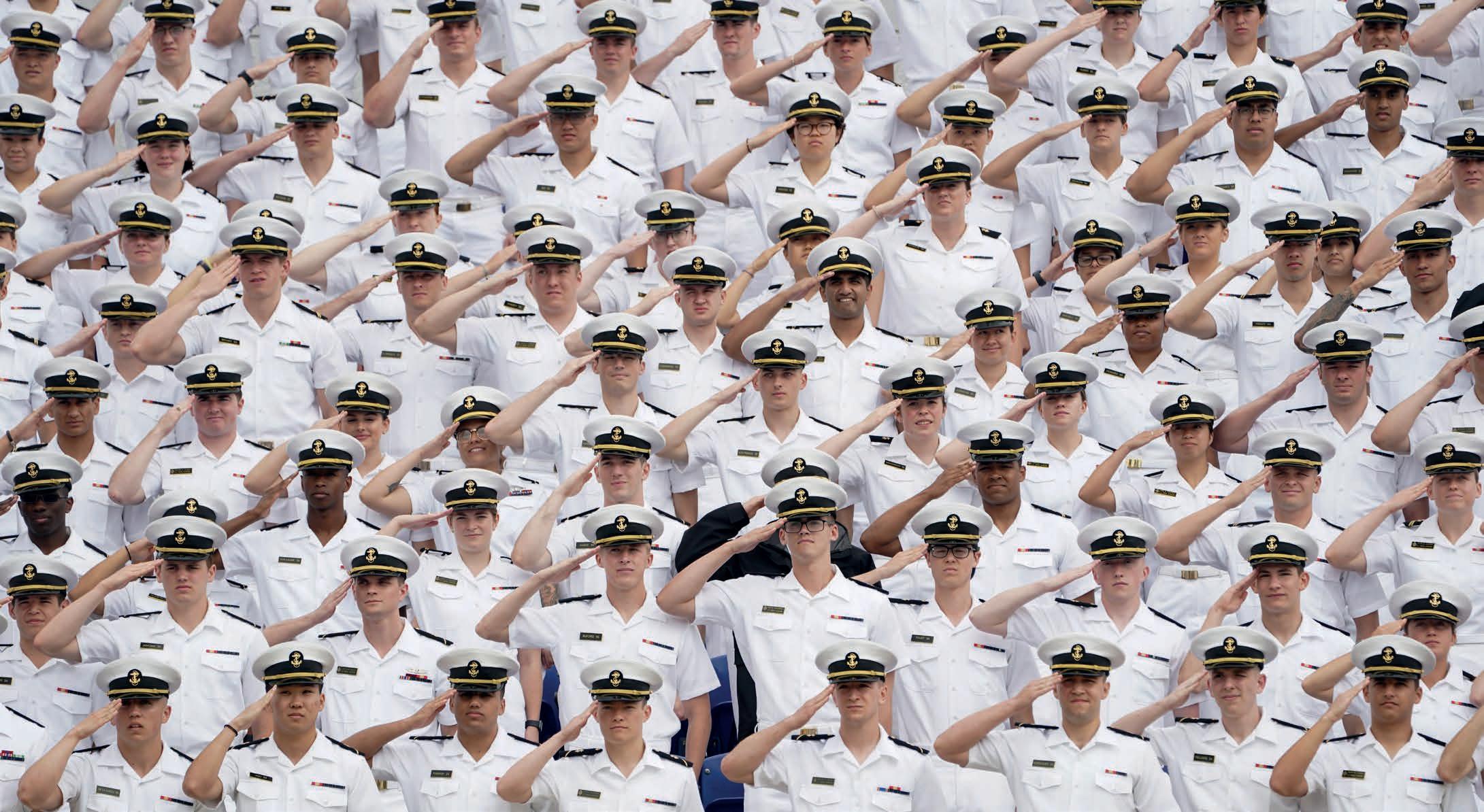
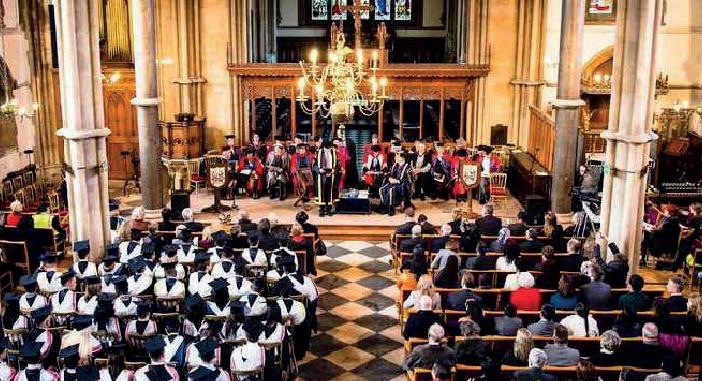
Laura Wellington (MA 2020) writes: ‘I cannot recommend this course highly enough. Never in my wildest dreams did I think I would have access to some of the most acclaimed academics in the field through the programme’s seminars and lectures. However, it was the personal support provided by my tutor that was the critical element that helped me to achieve the result that I did. Always swift to respond with comprehensive feedback, my supervisor also pushed me to dig deeper into my subject area. The result was a final grade that I never believed I could achieve.’
Name withheld for security reasons (MA 2020) writes: ‘Having previously worked in postconflict stabilisation, completing my MA with the University of Buckingham helped me to pivot my career. Currently, I am Head of GeoPolitical Analysis for a major strategic communications agency working to solve some of the biggest political, social and humanitarian challenges that the world faces today.
‘I apply the knowledge I gained from the course regularly, but more importantly, the research skills I learned are something I now use on a daily basis. My MA played a central
role in helping me move into this field.
‘The speakers were first class and the guidance I received from my tutor really helped to expand to the full my intellectual horizons.’
Mohamed Marwa (MA 2018) writes:
‘The course thoroughly equipped me to conduct independent research and due to the expert supervision and oneto-one tutorials, I was able to develop my knowledge and abilities quickly.
‘The MA programme so usefully developed my strategic skills that I was then able to use them in my job as an Army officers when working in multinational and inter-agency environments. After my MA course, I wrote three small books, one of which was based on my dissertation, and I am now enrolled in the Modern War Studies PhD programme at the University of Buckingham, also led by Professor Lloyd Clark.’
Right: woman commando of the state Anti-Terrorist Squad, Uttar Pradesh, 2022.
Below: 782nd Military Intelligence Battalion (Cyber) provide cyberspace operations support for the 3rd Brigade Combat Team, 1st Cavalry Division, 2019.
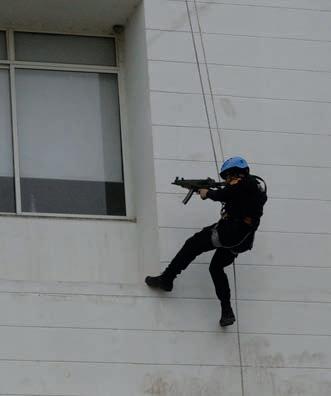
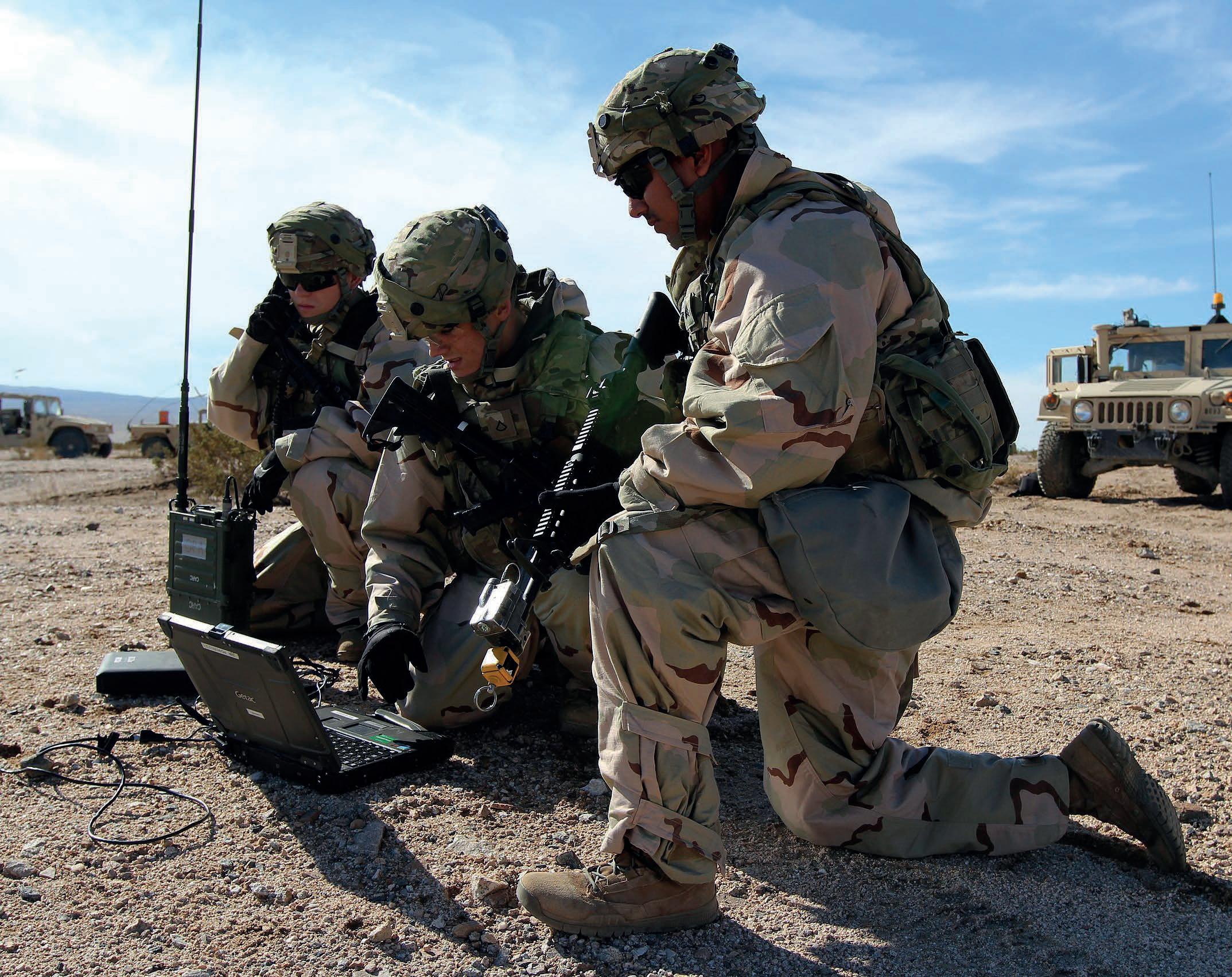
Founded in 1973 as a university college ‘on the pattern of [the] great private foundations in the USA’, Buckingham was granted full university status, with the power to confer degrees by royal charter, in 1983, the first independent university created since the nineteenth century. It is the only private university in the United Kingdom incorporated by royal charter.
From the start, the University was distinctive for its commitment to individual and small-group tutorial teaching, for the eminence of its academic body, and for its prizing of independence of thought and academic freedom.
It currently has just over 3,000 students, almost evenly divided by undergraduates and graduate scholars.
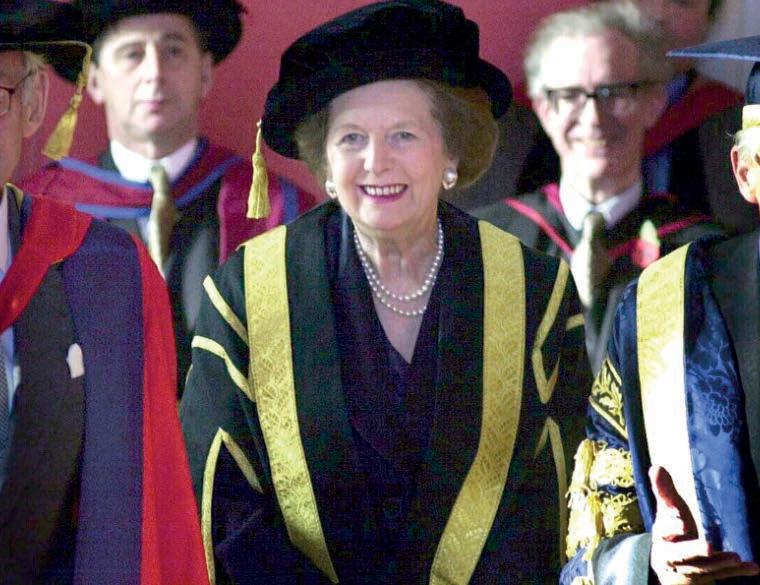
The University is renowned for its commitment to free speech and freedom of scholarly enquiry and is regularly ranked Number 1 amongst British University for ‘Freedom of Expression’.
Theuniversity is located in the centre historic market town of Buckingham on a fine campus surrounded on three sides by the Great Ouse River, with extensive lawns and gardens. Much of the fabric of the university and the surrounding town is medieval, with a notable series of buildings surviving from the eighteenth century.
For teaching purposes, the university also maintains offices in central London, in Gower St, Bloomsbury, which are used for tutorials and occasional seminars.
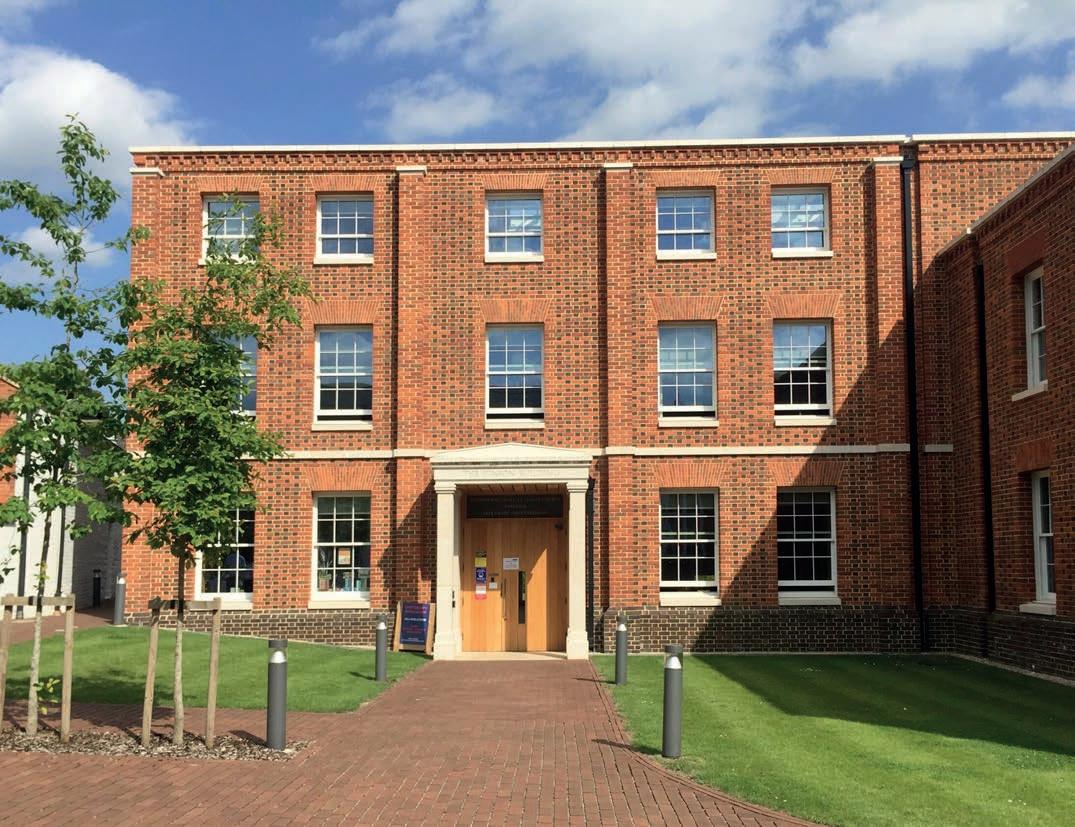
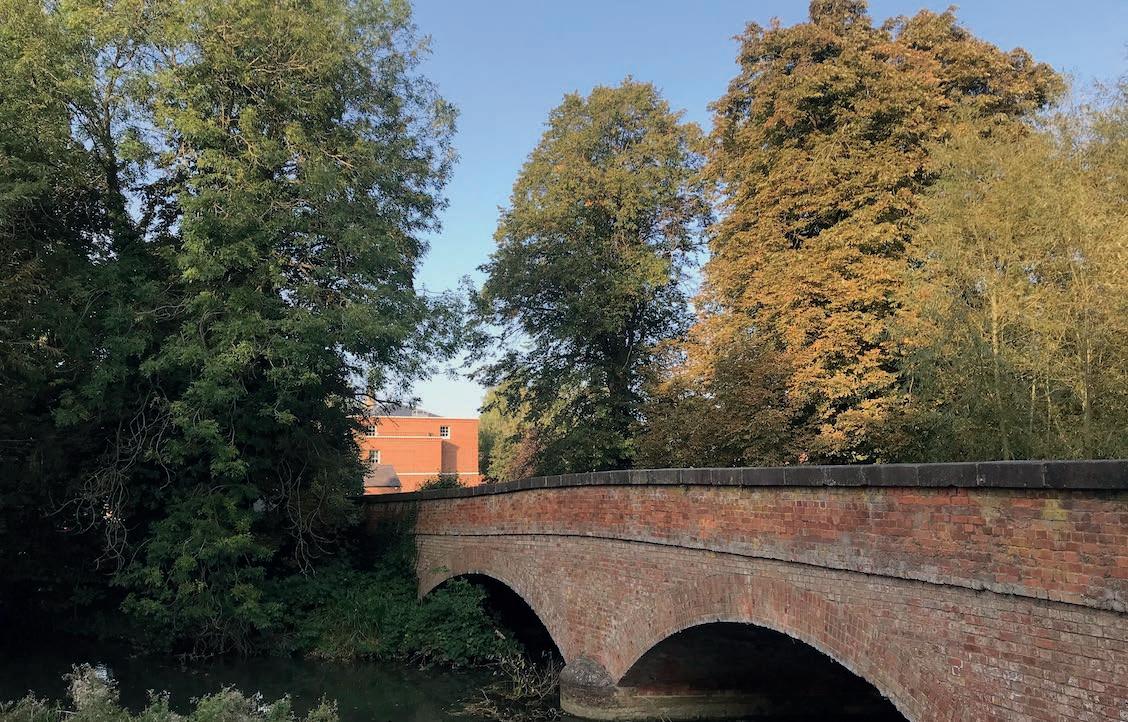
The environs of the town of Buckingham are renowned for the distinction of the historic houses nearby. Stowe House, former seat of the Dukes of Buckingham and Chandos, lies within walking distance of the main campus and offers one of the finest 18th-century, classicallyinspired landscapes in the whole of Europe.
Above: the Vinson Building, viewed from the university bridge across the Great Ouse.
Opposite page, left: the Baroness Thatcher, the second Chancellor of the University of Buckingham.
Opposite page, right: the main reception entrance of the University.
